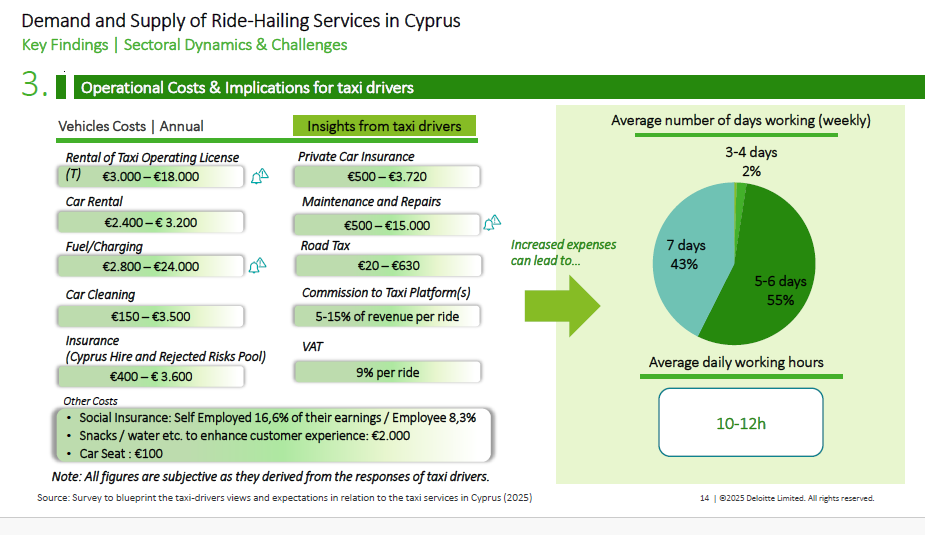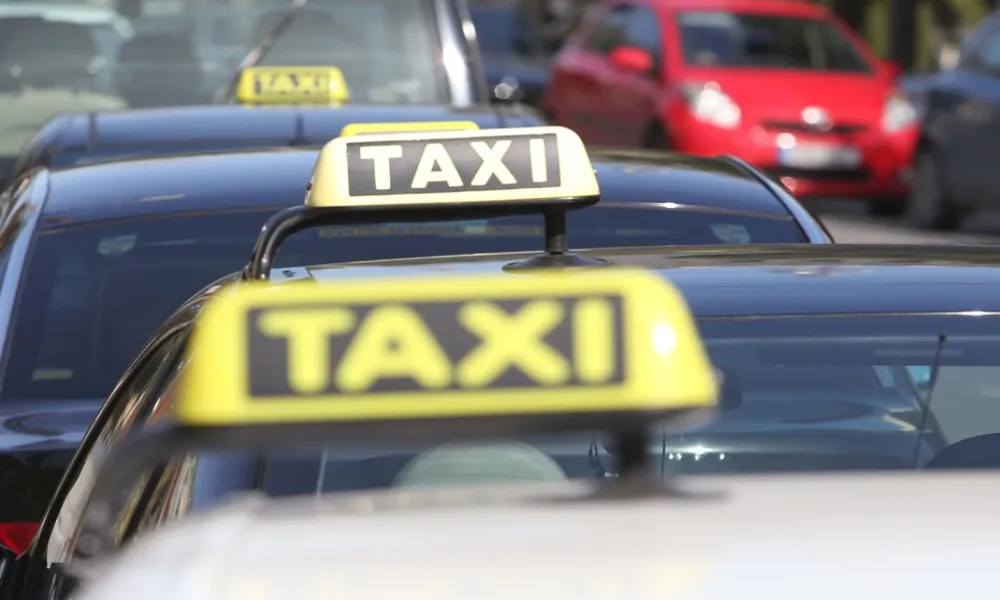Cyprus’s taxi market has been effectively frozen for 22 years, fuelling an unofficial trade in licences and inconsistent pricing for passengers. The Licensing Authority is preparing a reform package to impose clear rules and modern supervision before opening new licences, aiming to benefit both drivers and riders.

With no new licences since 2002, permits have become investment assets: resale prices reportedly reach up to €100,000, while 48.6% of licences are rented to drivers. Deloitte data show licence rent can cost €3,000-€18,000 a year, fuel up to €24,000, plus insurance, maintenance, platform fees and taxes, pushing some drivers to work 10-12 hours a day, six or seven days a week. The result is a “shadow market” where a few control permits and many pay to work, while the state loses revenue.
Piracy on the roads
The freeze opened the door to unlicensed rides via social media and informal platforms. Licensing Authority president Despina Amerikanou calls piracy a “challenge,” noting that since July 2024 the law allows the Road Transport Department to fine illegal operators €700, hundreds of cases have already been recorded.

“Before issuing licences, the sector’s problems must be fixed,” the Authority says. It has launched consultations with professional drivers, hoteliers, tour agents and citizens to map real needs, then design a transparent, tech-enabled system with clear criteria.
What’s in the new framework
• Mandatory POS for payments.
• Redefined licence fees; end to off-book transfer/rental of licences.
• Driver training every 1-2 years (road conduct, customer service, first aid, basic mechanics).
• Fleet renewal with incentives for hybrid/electric taxis.
• Fare review under the transport minister, especially for airport trips.
The package is due to be filed to the Transport Ministry by end-November.
The numbers that don’t add up
Cyprus has just 38 active taxi licences per 100,000 residents vs an EU average of 114. To meet demand by 2030, at least 3,200-5,600 new licences are estimated to be needed. The Authority favours smart issuance tools: geographic targeting, seasonal permits for tourist hotspots and anti-shadow-economy safeguards.

Inconsistent pricing erodes trust. As one Nicosia resident put it: “At 4 pm a ride from A to B cost €10; at 6 pm, the return cost €20.” Reform aims to deliver transparent fares, safer vehicles and reliable service.
Bigger picture: mobility and traffic
A functioning taxi system could also ease congestion by offering a dependable option for those without easy access to public transport, especially seniors, once long-standing distortions (licence freeze, opaque trading, under-the-table rentals, piracy and weak enforcement) are addressed.
